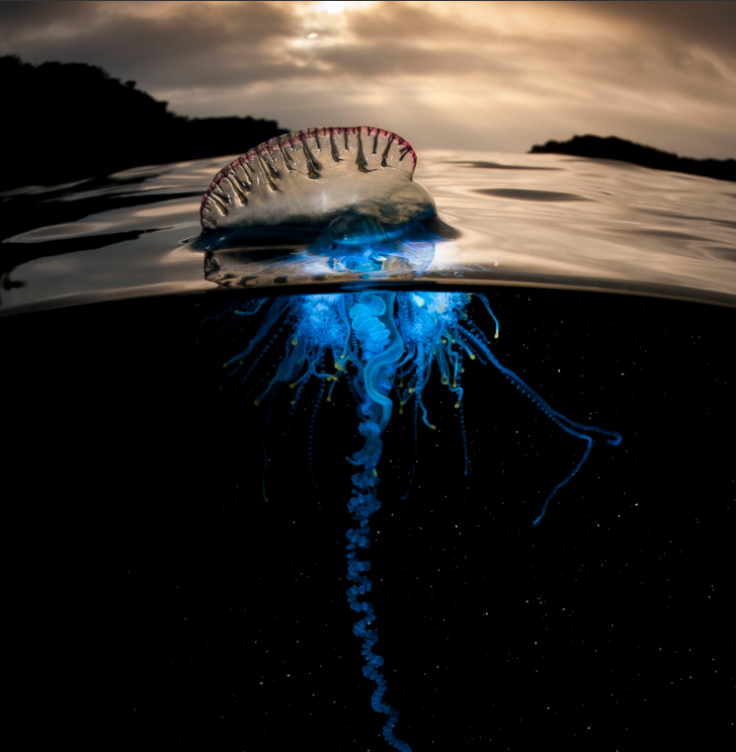Floating terror: Deadly jelly-like sea creature features in next 'horrifying' Blue Planet 2 episode
Portuguese man-of-war or the floating terror is most likely to be mistaken for a jellyfish.

Sir David Attenborough's popular BBC One series continues with its great exploration in the big blue next weekend. After the hair-raising segment on the 'alien-like' Bobbit worm, Blue Planet 2 viewers are all set to explore the life of a deadly sea-creature that hunts using its venomous tentacles in next Sunday's (19 November) episode.
Known as Portuguese man-of-war or the floating terror, the creature is most likely to be mistaken for a jellyfish. But, according to a description available on the National Geographic's site, the man o' war is an animal made up of a colony of organisms working together.
Along with a host of other creatures and animals from the wilderness, the episode explores the life of the Man-of-war. An official summary on the BBC UK website even includes a little teaser on what fans could expect to see in the next episode, Big Blue.
"Over half of all animals in the open ocean drift in currents. Jellyfish cross entire oceans feeding on whatever happens to tangle with their tentacles," the description read, adding, "The jelly-like Portuguese man-of-war can harness sail power to fish with its deadly tentacles."
These are the world’s smartest fish #BluePlanet2 https://t.co/kNLtWzRyPf pic.twitter.com/XlpIC6jsMd
— BBC Earth (@BBCEarth) November 14, 2017
Blue Planet 2's upcoming episode also includes a fascinating discovery on the birthing process of the ocean's biggest fish, the whale shark.
"Raising your young in this great wilderness is a huge challenge. The episode follows two very different ocean voyagers that show amazing care. We get closer to solving the mystery of where the biggest fish in the sea, the whale shark, gives birth.
The pregnant females make an epic journey across the Pacific to the Galapagos Islands. Scientists now think it might be here that the pregnant females give birth to their pups in the safety of the depths. And in the freezing south Atlantic, a pair of ageing wandering albatrosses give their all to raise their very last chick." – From the episode description
The seven-part nature series has so far been well-received by the audience – with last Sunday's episode on coral reefs raking in a record 11.3 million viewers. This is in line with the upward curve, considering the 10.3 million average of overnight viewers after Blue Planet 2 debuted its first episode.
Involvement of renowned naturalist, Sir David, only adds to the popularity of the documentary sequel. "I am truly thrilled to be joining this new exploration of the underwater worlds which cover most of our planet, yet are still its least known," said the English broadcaster.





